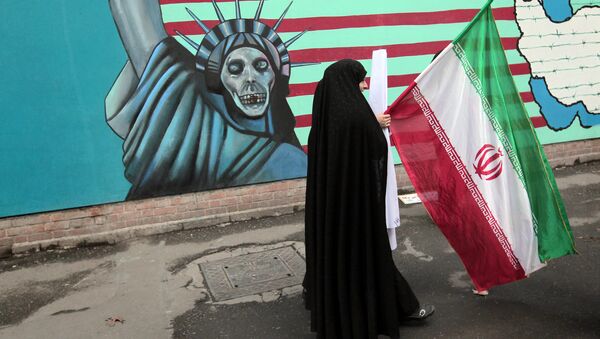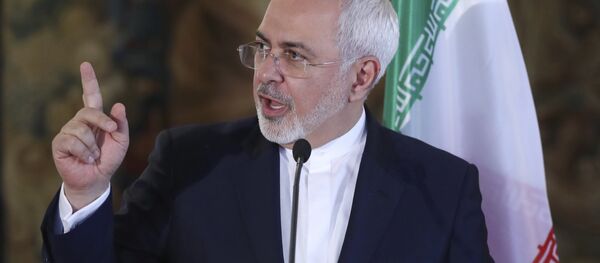Speaking at the Iran Freedom Convention for Democracy and Human Rights in Washington, Rudy Giuliani, Donald Trump's attorney and former mayor of New York City, signaled the US President's readiness to prompt an overthrow of the Iranian government.
Politico quoted Giuliani as saying that Trump is "as committed to regime change [in Iran] as we are."
This is "the only way to peace in the Middle East" and "more important than an Israeli-Palestinian deal," Giuliani underscored.
READ MORE: US Rejecting JCPOA 'Doesn’t Mean Other Countries Will Pull Out' — Professor
The statement came more than five months after Trump tweeted his "respect" for Iranians taking part in the protests against "their corrupt government", adding that the people of Iran will see "great support from the United States at the appropriate time."
In a letter to UN Secretary General Antonio Guterres, Iran’s Envoy to the UN Gholamali Khoshroo warned against meddling in Tehran's domestic affairs and slammed Trump's support for the protests as "grotesque."
READ MORE: No Alternative to Iran Nuclear Deal in Sight as US Set on Withdrawal — Analysts
He was echoed by Iranian Foreign Minister Javad Zarif, who said on his Twitter page that Trump has an odd way of showing 'such respect' for Iranians: from labeling them a 'terrorist nation' & banning them from visiting the US, to […] 'helping them' by depriving them of the economic dividends from the JCPOA [the Joint Comprehensive Plan of Action, also known as the Iran nuclear deal]."
Trump has repeatedly voiced his dissatisfaction with the JCPOA; in late January 2018, he intensified his rhetoric, asking US Congress to deal with the flaws in the "terrible Iran nuclear deal" and threatening to pull out of it otherwise.
READ MORE: If Nuclear Deal is Nixed Iran Could Resume Its Nuclear Program – Envoy
Russia, for its part, signaled a willingness to stick to the JCPOA provisions as long as other signatories do. Moscow has repeatedly underlined that it does not believe that the deal needs to be changed.
The JCPOA was signed by the EU, Iran and the P5+1 group, including Russia, China, France, Britain, the US and Germany, on July 14, 2015. The agreement envisages Tehran pledging not to push for obtaining nuclear weapons in exchange for the lifting of sanctions imposed against the Islamic Republic.



